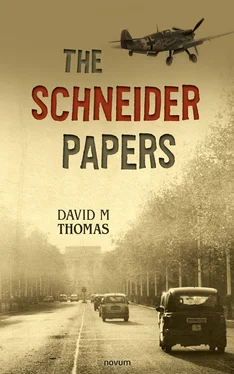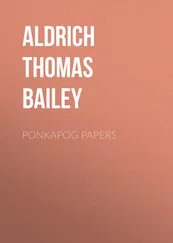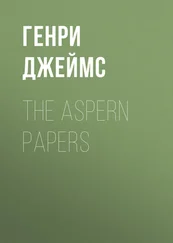David M Thomas - The Schneider Papers
Здесь есть возможность читать онлайн «David M Thomas - The Schneider Papers» — ознакомительный отрывок электронной книги совершенно бесплатно, а после прочтения отрывка купить полную версию. В некоторых случаях можно слушать аудио, скачать через торрент в формате fb2 и присутствует краткое содержание. Жанр: unrecognised, на английском языке. Описание произведения, (предисловие) а так же отзывы посетителей доступны на портале библиотеки ЛибКат.
- Название:The Schneider Papers
- Автор:
- Жанр:
- Год:неизвестен
- ISBN:нет данных
- Рейтинг книги:3 / 5. Голосов: 1
-
Избранное:Добавить в избранное
- Отзывы:
-
Ваша оценка:
- 60
- 1
- 2
- 3
- 4
- 5
The Schneider Papers: краткое содержание, описание и аннотация
Предлагаем к чтению аннотацию, описание, краткое содержание или предисловие (зависит от того, что написал сам автор книги «The Schneider Papers»). Если вы не нашли необходимую информацию о книге — напишите в комментариях, мы постараемся отыскать её.
A narrative of disparate characters, from the leonine intelligence chief Major Alastair Cartwright MC in London to the clever and elegant Elisabeth Schneider, economist and Soviet spy, this is a story of American business funding Nazi Germany and the rebuilding of Soviet Russia, as part of President Franklin D. Roosevelt's New Deal programme.
The Schneider Papers — читать онлайн ознакомительный отрывок
Ниже представлен текст книги, разбитый по страницам. Система сохранения места последней прочитанной страницы, позволяет с удобством читать онлайн бесплатно книгу «The Schneider Papers», без необходимости каждый раз заново искать на чём Вы остановились. Поставьте закладку, и сможете в любой момент перейти на страницу, на которой закончили чтение.
Интервал:
Закладка:
The Ju52 seat configuration was a single row of patent leather chairs on each side, with a central aisle. Mason sat just in front of the rear embarkation door. The seat was comfortable, plenty of leg-room, a folding table attached to the back of the seat in front and a fishing-net type arrangement for the storage of magazines and newspapers. He found his own personal hot air duct, located under his seat and operated by a convenient lever between the seat and the fuselage wall. His rectangular window was generous in size and with heavy side curtains. Yes indeed, quite acceptable.
From his seat he assessed the airworthiness of his fellow passengers. It is easy to differentiate the nervous, the first time flier, from the more experienced and confident traveller. Some simply plop down in their seats and don’t move, whilst other fidget and are up and down from their seats like meerkats. There were some of those.
The flight itself was relatively uneventful. The uniform blanket of dull weather over southern England gave way to fluffy, broken cumulus clouds at the Belgian coast. He could make out the long sandy beach and dunes between Dunkirk and Ostend through the clouds. Mason figured they were flying through the cold front and would soon head for a high pressure zone centred somewhere in Europe. This could promise clear skies and fine weather over Germany. From his window seat, he noticed the slow left hand turn to follow the coastline up to Amsterdam Schiphol aerodrome. The port of Zeebrugge with its docks and cargo ships soon passed below him. This meant that the medieval town of Bruges was to his right. Bruges had come through the Great War unscathed, luckily too far north to be affected by the Schiffen Plan. The cemeteries of Ypres and Passchendaele were only forty kilometres away to the south.
As he was trying to identify the ship canal from Bruges to Zeebrugge through the broken clouds, a steward appeared from the galley, working his left, then to his right. Refreshment time. ‘Coffee or tea Herr Madden, and perhaps a schnapps?’ A plate of fish paste and meat sandwiches was also complimentary and carefully laid on the fold down table.
The islands and peninsulas of Zeeland, surrounded by speckled white dots of sail boats and wakes of fishing craft, with convoys of bigger tramp and freight ships leaving and entering the Westerscheldt estuary, told Mason that the port of Antwerp was under the starboard wing of flight DLH 1032. The air got a bit bumpy – he heard the clinking of cups on saucers up and down the aisle, and the steward quickly cleared them away; instructions from the cockpit. Soon heavy cloud obscured the ground. He felt the Ju52 turn to the right – inland and then left again. He assumed this was to quickly pass through the frontal system and its bumpy transition into more stable air. Passenger comfort comes first – just as long it’s not too much of a detour. Commercial pilots have to think of fuel costs and timetable deadlines these days. Different type of flying; for a military pilot air turbulence came with the job. Commercial pilots have to think of the passengers. The extra detour distance and the fuel consumption would be offset by the tail wind. Stand with your back to the wind and the low pressure is to your left and high pressure to the right. Counter-clockwise low pressure air movement, supplementing the clockwise direction of the high pressure system, equals a good tailwind. He remembered a scene from his preliminary flight training, and smiled to himself. Happy days.
The consistent, and to him, somnolent sounds from the droning radial engines changed suddenly and he felt a slight dip in his stomach. Descent, and a quick one, through the cloud and into clear air, and level off at about two thousand feet. Fields and marshes and the sand dunes of Zandvoort, then a sharp right and a right again for final approach and landing into the wind at Schiphol aerodrome.
‘Well, that was a good flight.’ He looked at his watch, 12.04 pm, eleven minutes early. Passengers had time to stretch their legs, either on the apron in front of Arrivals or inside to the Transit lounge. He saw a couple of Royal Dutch Airlines KLM Douglas DC-2s and the new DC-3, which probably serviced the Dutch East Indies, he reckoned. KLM had made a good choice in buying the new DC series of airliners. Good reliable planes, air cooled radial engines as well.
Mason decided to stay on the concrete apron, lit his pipe and watched the mechanics give the engines the once-over. Fuel was topped up and the oil tank on each engine filled. There was a crew change, and he heard one of the pilots talk of his afternoon flight to Cologne. A metallic tannoy voice announced immediate boarding of DLH 1032 to Berlin. Back on board.
Mason noticed that one of the professional industry types he had tagged earlier had now moved from his original seat for’ard and now sat across the aisle, and looked over at his direction a few times. It was not a curiosity series of glances, decided Mason, more of a succession of short penetrating stares. It was as if this person was willing Mason to turn his head. Mason complied, and looked him squarely in the face. The starer, startled by this unexpected movement, quickly turned away, not acknowledging the eye contact, bowed his head, fiddled with his tie, and continued to read the journal he had on his knees. Well, thought Mason, if he is an agent of some sort, he’s not very good at it, and I made it known that I acknowledged him and will recognise him in the future. And also, from his clothes, and after eavesdropping his conversation with the steward, he’s definitely English.
What exactly was the point of that exercise? A warning? We know who you are! We know what you’re up to!
The flight over Lower Saxony was boring, nothing but the flatness of the North German plain to look down upon. This vast geomorphological feature extended north into Schleswig-Holstein and Denmark, and further east to the Baltics and Poland. After the eye confrontation with this annoying and suspicious man opposite, Mason became as bored as the vista offered through his window. He closed his eyes and dozed a few times, but also kept an eye on his new friend through half closed eyelids. Refreshments arrived when, according to the steward, they were over Hanover, and this time he accepted a glass of schnapps.
Templehof airfield came into sight as the pilot banked and readied the Junkers 52 for the downwind circuit approach. The weather had cleared, an idyllic September afternoon, with a gradient of a sun yellow-blue horizon in the west to a light blue overhead sky. Marvellous views over the city. He could easily recognise the light green carpet of the Tiergarden with its criss-cross sandy paths, a little to the east along the Unter den Linden was the Embassy and then, to define the edge of Berlin central, the winding indigo coloured Spree river on its way to join the Elbe and the North Sea. Templehof was only a few miles from the city centre, and Mason decided to travel by the Deutsche Lufthansa airport bus to Potsdamer railway station. Flight DLH 1032 touched down at 4.18pm, on time.
Mason took off his wristwatch and moved the hour hand forward an hour. Germany was one hour ahead of its neighbours. France, Belgium and Holland were on English time. Contrary Germany. It would be wouldn’t it! thought Mason, and smiled.
***
The reality of the new Germany struck home at the arrivals hall. It was a large marble floor and pillar palace with an all glass front overlooking the parking apron and runway. It had opened just in time for the 1936 Olympics, or at least the Arrivals building upgrade was finished. He could hear the engine noise of aircraft taxiing for take-off and others landing. Late afternoon arrival was a popular time and white transit buses disgorged tourists, business people and returning Berliners. Black uniformed officers, guardians of peace and order, either solitary or in pairs, stood or walked slowly around, eyeing the herd of disembarked passengers like predatory beasts. The atmosphere was silent and noticeably nervous, the only noise from squeaking shoes on the marble floor and hand luggage put down or dragged along. Orderly queues formed under the brightly lit chandeliers, leading to rows of Passport Control booths, some open for business, others empty. Pictures of a welcoming ‘Der Führer’ and a giant swastika flag hanging horizontally from ceiling suspension cables greeted one and all to the new Germany. Nobody spoke unless in whispers, even the children, noise admonished by whispering parents. Deathly hush. Suddenly, a woman’s loud shrieky voice, followed immediately by a man’s shouted guttural indecipherable command, pierced the silence from the other end of the hall. Muffled sounds, black uniform movement towards the kerfuffle from Mason’s side of the hall; but because of the lines of people, he could not see what was going on. Everyone heard a door slam shut somewhere, then silence. No one looked at each other, just straight ahead. Back to the quiet queue and the slow shuffling of obedient feet towards the uniformed officer in the glass booth, at journey’s end.
Читать дальшеИнтервал:
Закладка:
Похожие книги на «The Schneider Papers»
Представляем Вашему вниманию похожие книги на «The Schneider Papers» списком для выбора. Мы отобрали схожую по названию и смыслу литературу в надежде предоставить читателям больше вариантов отыскать новые, интересные, ещё непрочитанные произведения.
Обсуждение, отзывы о книге «The Schneider Papers» и просто собственные мнения читателей. Оставьте ваши комментарии, напишите, что Вы думаете о произведении, его смысле или главных героях. Укажите что конкретно понравилось, а что нет, и почему Вы так считаете.












